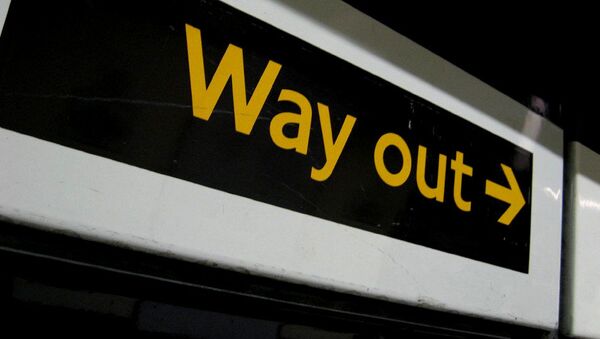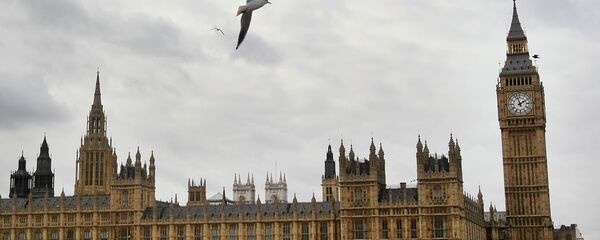Chancellor and newly appointed First Secretary of State George Osborne, who has been tasked with leading negotiations to try and reform Britain's relationship with the bloc, represented Britain at a meeting of Eurozone finance ministers in Brussels, where a number of issues, including Greece's ongoing debt problems were discussed.
I have re-appointed George Osborne as Chancellor of the Exchequer. He will also be First Secretary of State — the ranking Cabinet Minister.
— David Cameron (@David_Cameron) May 8, 2015
And while Osborne didn't officially bring up the matter of Britain renegotiating the terms of its membership agreement with the EU, he used the meeting to privately discuss Britain's push to change its agreement with the bloc.
"We come here with a very clear mandate to improve Britain's relationship with the rest of the EU, and to reform the EU so that it creates jobs and increases living standards for all its citizens," he said before today's meeting.
"I don't think anyone's now in any doubt that we will hold that referendum on Britain's membership of the European Union having conducted these negotiations.
"We go into the negotiations aiming to be constructive and engaged, but also resolute and firm… No-one should underestimate our determination to succeed for the working people of Britain, indeed the working people of the whole of the European Union."
Schaeuble Knocks Back Calls for Treaty Change
Despite Osborne holding talks with German finance minister Wolfgang Schaeuble, the Germans poured cold water on British hopes of making changes to the EU treaty before a British referendum on EU membership, to be held before the end of 2017.
Despite Germany pushing for an overhaul of certain EU treaties to make the bloc run smoother, Schaeuble rejected Osborne's proposals for a UK treaty change on its membership agreement in the near future.
"His comments are only helpful if he wants to strengthen the economic and monetary union."
"The German government wants treaty change one day. We don't think it will happen tomorrow. All we need to do to strengthen the economic and monetary union can be done without treaty change," The Times reported Schauble as saying.
The comments will come as a blow to Osborne, David Cameron and the Conservative party in Britain, who had been hoping to make changes to Britain's EU deal before holding a referendum on the country's membership before the end of 2017.
David Cameron has publicly stated that he would prefer the UK to remain within the EU, but only if changes are made to the country's current agreement.
Meanwhile, in a possible sign of a political backlash against the British plans to reform their agreement, Austria's finance minister Hans Joerg Schelling, criticized David Cameron's government for pursuing the idea of a referendum.
"I think politicians have to act decisively. And when politicians believe they have to ask the people, it's an indication that they themselves are not willing to make the decisions and carry the consequences."





